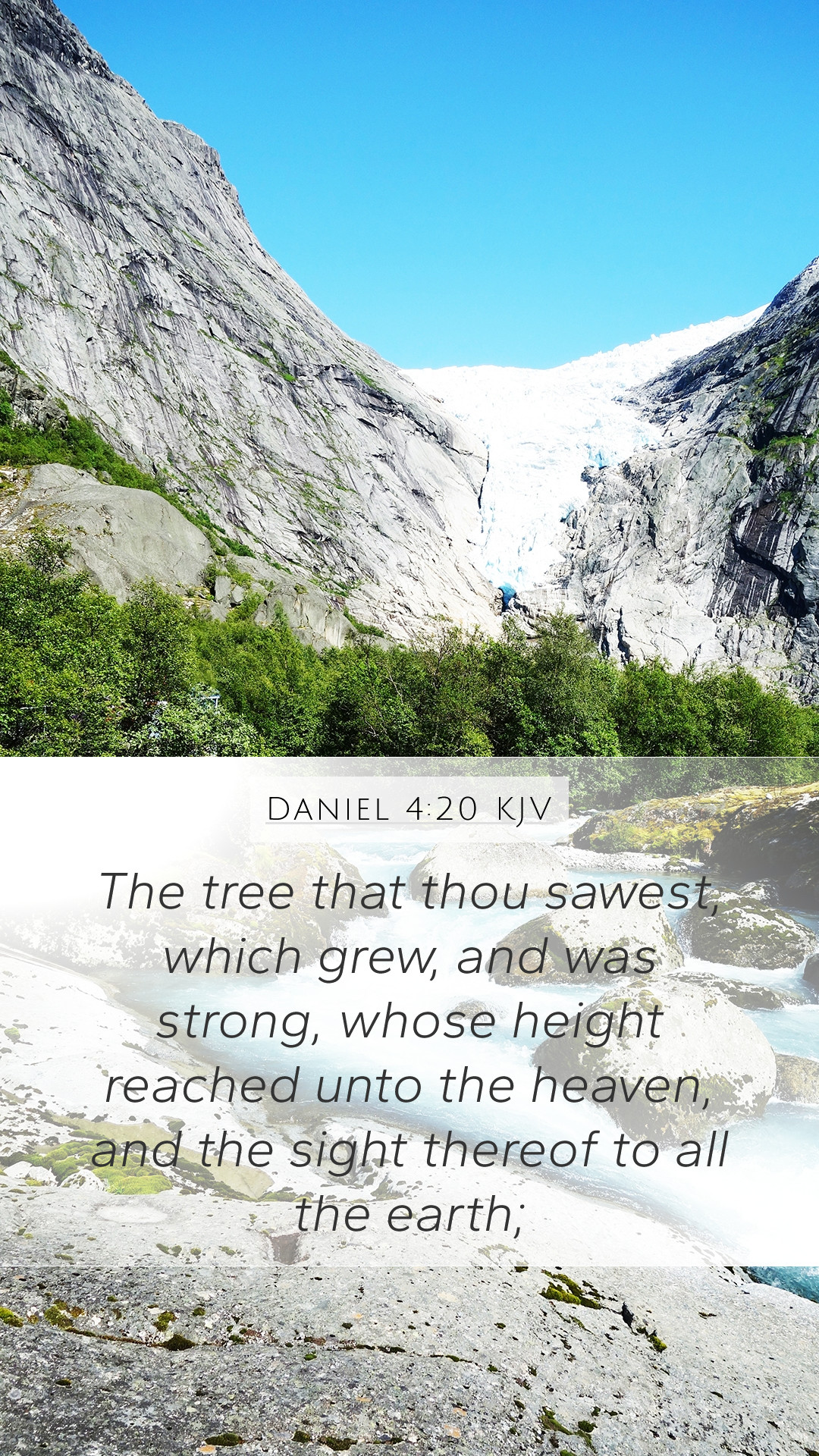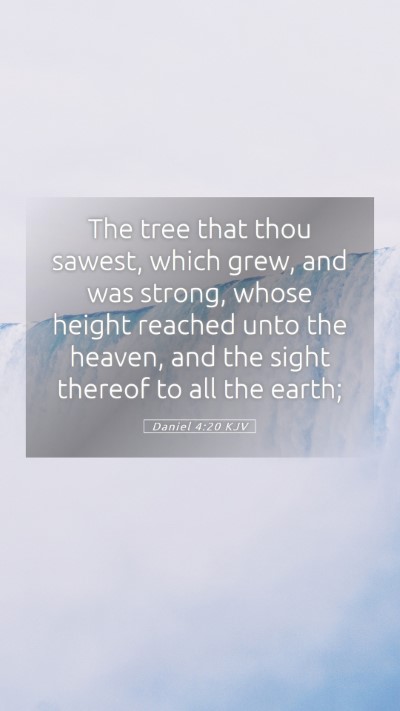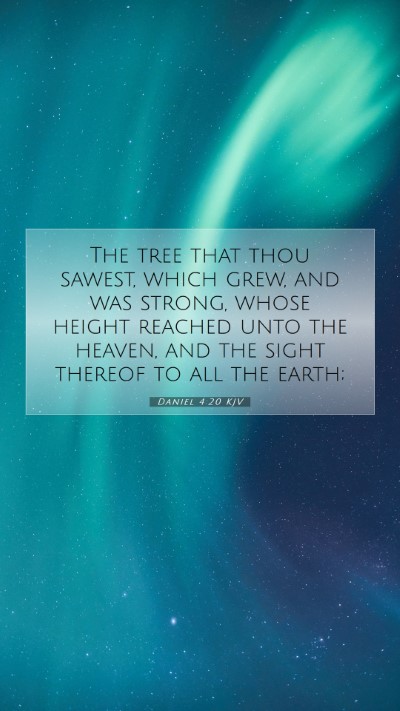Understanding Daniel 4:20
Verse: Daniel 4:20 (KJV) - "The tree that thou sawest, which grew, and was strong, whose height reached unto the heaven, and the sight thereof to all the earth."
Overview
Daniel 4:20 is part of a prophetic dream experienced by King Nebuchadnezzar of Babylon, which the prophet Daniel interprets. This verse highlights the imagery of a great tree, symbolizing the king’s reign, power, and glory. Through the dream, God conveys profound truths about divine sovereignty, human pride, and eventual restoration.
Bible Verse Meanings and Interpretations
The meanings derived from this verse can be explored through various commentaries:
-
Matthew Henry:
Henry discusses the metaphor of the tree and its implications regarding Nebuchadnezzar’s kingdom. He emphasizes that the growth and strength of the tree represent the vastness and prosperity of Babylon under the king’s rule, but also warns of impending judgment due to his hubris.
-
Albert Barnes:
Barnes elaborates on the nature of the tree as a symbol of the kingdom's influence and reach. The vision signifies both greatness and the eventual downfall that follows arrogance, as emphasized in the context of divine authority over earthly rulers.
-
Adam Clarke:
Clarke interprets this verse with a focus on the vision’s purpose—pointing to the eventual downfall of Nebuchadnezzar. He notes that the scope of the tree reaching to heaven stresses the extent of the king's pride and the subsequent consequences of divine judgment.
Scriptural Analysis
This verse prompts reflection on several significant themes:
- Divine Sovereignty: The verse illustrates God’s ultimate control over nations and rulers, demonstrating that earthly power is achievable but not without accountability.
- Human Pride: The strong growth of the tree serves as a warning against pride, reminding believers of the necessity of humility before God.
- Judgment and Restoration: The imagery encapsulates the dual themes of downfall and hope. While judgment is certain, the promise of restoration following repentance is inherent in God’s dealings with humanity.
Applying Bible Verses to Daily Life
When examining the meaning of this verse in a practical context, believers can reflect on their own lives:
- Assessing personal pride and ambition. How do we respond to our own successes?
- Recognizing the importance of humility in leadership roles, both in religious and secular contexts.
- Understanding that every achievement is subject to divine oversight and eventual accountability.
Related Bible Cross References
- Daniel 2:37-38 - Nebuchadnezzar is depicted as a tree representing power.
- Proverbs 16:18 - "Pride goes before destruction," correlating with the theme of humility.
- Isaiah 2:12 - A warning against human pride and the day of the Lord’s judgment.
Conclusion
Daniel 4:20 serves as a profound reminder of the transient nature of earthly power and the importance of humility before God. When we study scripture, especially verses like this, we reveal layers of meaning that can lead to deeper understanding and personal application. Through in-depth Bible verse analysis and mindful consideration of biblical exegesis, we can appreciate how these lessons are relevant in our lives today.
Further Bible Study Resources
For those looking to delve deeper into the study of this verse and similar passages, consider exploring:
- Bible study guides that focus on prophetic literature.
- Online Bible study resources for community discussions.
- Bible study tools that offer translations and historical context.


